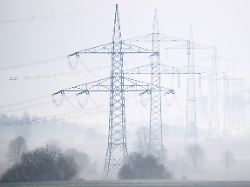First balance of 2022
Energy prices are rising despite relief
04/17/2023 10:22 am
Electricity and gas prices have been rising rapidly since the beginning of 2022. It is therefore being observed with interest how the “double boom” announced by Chancellor Scholz will affect energy prices. But the figures for the second half of the year show that the result is still manageable.
The energy costs for households in Germany rose sharply again in the second half of 2022 after a sharp increase in the first half of the year. An average of 9.34 cents per kilowatt hour was due for natural gas – an increase of 16.2 percent, as reported by the Federal Statistical Office. The electricity prices increased accordingly less significantly by 4.4 percent to 34.96 cents per kilowatt hour.
For non-household customers such as companies and authorities, gas costs increased by 25.3 percent. In the case of electricity, the increase for this customer group was just as high as for private customers: 4.4 percent.
As the statisticians explained, the prices for all customers with low consumption rose less than for large customers. This applies to both natural gas and electricity. Households with an electricity consumption of 2500 to 5000 kilowatt hours paid an average of only 2.4 percent more.
Less increase than in the first half of 2022
Relief such as the reduction in the sales tax rate, the December aid for natural gas customers and the elimination of the EEG surcharge are included. In the first half of 2022, costs rose even more sharply than in the second half of 2021: by 36.7 percent for natural gas and 6.4 percent for electricity.
“Despite falling wholesale prices for electricity and gas, the average end consumer prices for these energy sources are likely to remain high in the first half of 2023 and could even rise, especially for gas,” said the director of the Institute for Macroeconomics and Business Cycle Research (IMK) at Hans-Böckler Foundation, Sebastian Dullien. “Price changes in wholesale are only reflected in the prices for private households with a delay, because contracts there usually have longer terms.”
The new figures from the Federal Statistical Office also show the special problems of German industry: “Since the second half of 2019, i.e. immediately before the corona pandemic, electricity prices for large consumers among companies have risen by around 50 percent,” explained Dullien. The same applies to gas prices. “That puts a strain on international competitiveness, especially with competitors in countries with cheaper energy.”
